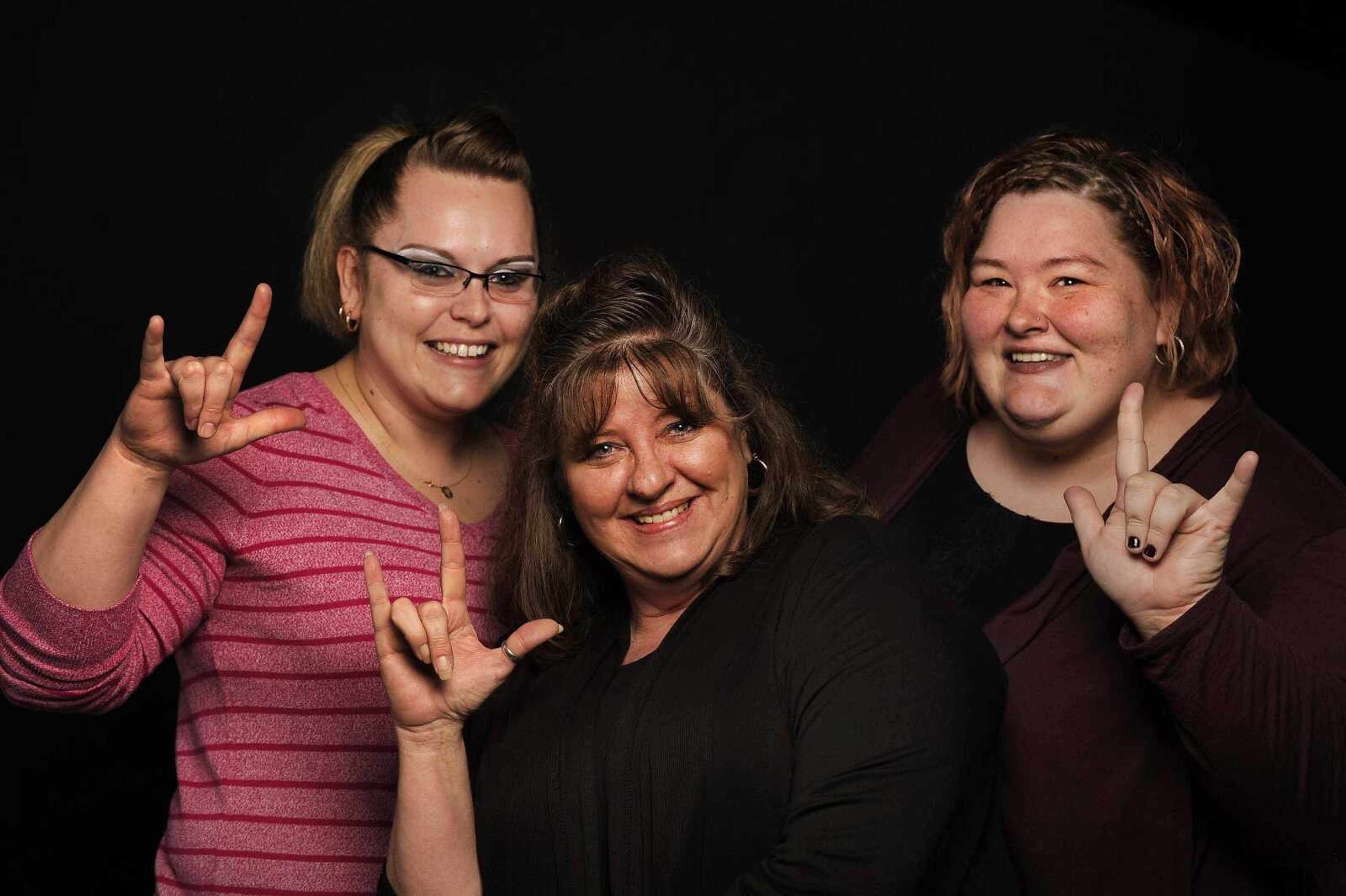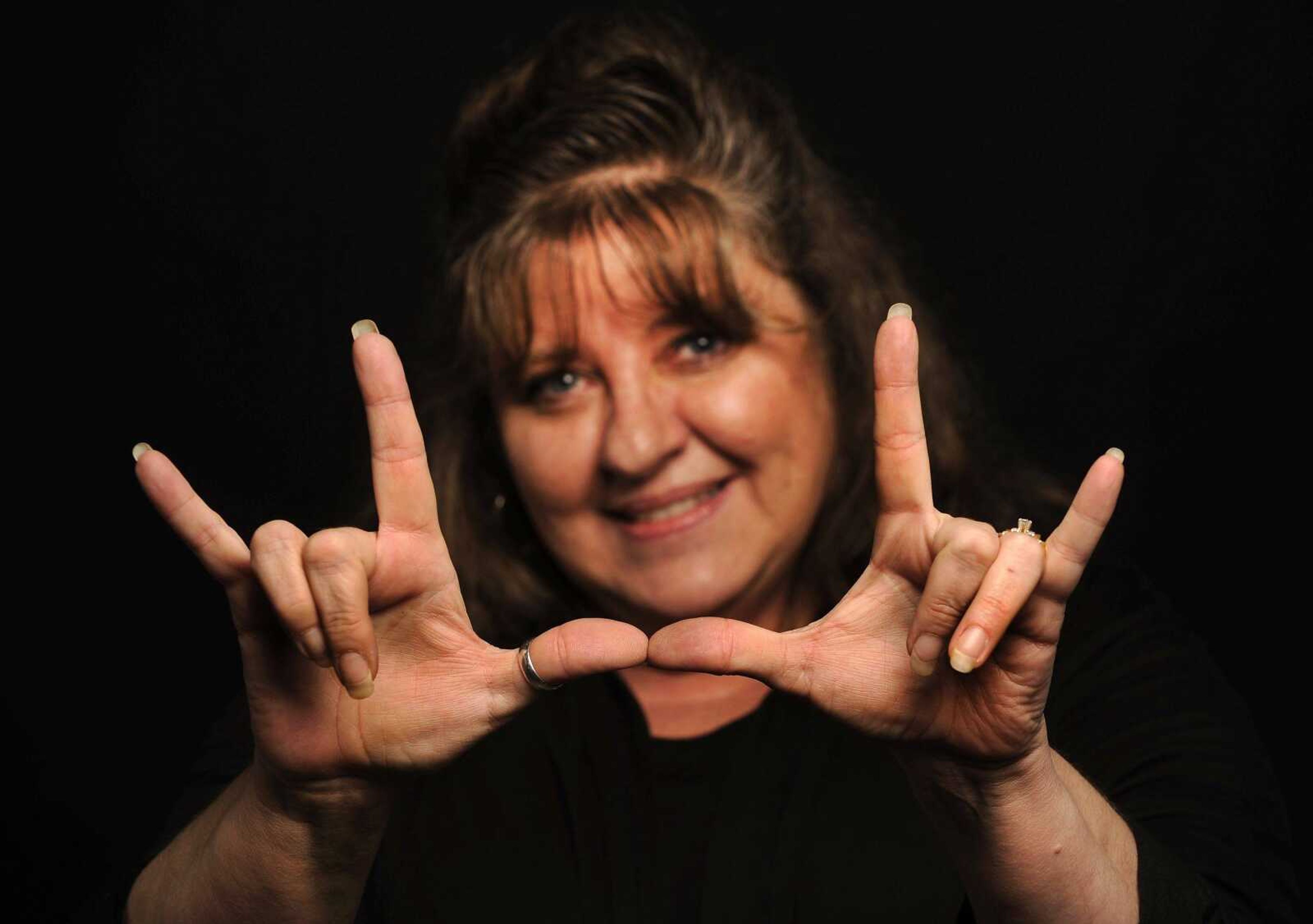Give me a sign
Every morning, Jackie Cole drives to her job at SEMO Alliance for Disability Independence just like everyone else; she helps area clients and does paperwork just like everyone else; she just does it in silence. Before Cole was born, a bout with rubella complicated her mother's pregnancy and she was born deaf. But she's not bothered by that; in fact, she's thankful she was born only deaf and not with the heart complications that also are common with prenatal rubella exposure...
Every morning, Jackie Cole drives to her job at SEMO Alliance for Disability Independence just like everyone else; she helps area clients and does paperwork just like everyone else; she just does it in silence.
Before Cole was born, a bout with rubella complicated her mother's pregnancy and she was born deaf. But she's not bothered by that; in fact, she's thankful she was born only deaf and not with the heart complications that also are common with prenatal rubella exposure.
"My mother didn't think I was deaf," she explained via an interpreter. But her father, who was hard-of-hearing himself, knew right away. "My father just looked at me and said, 'Nope. She's deaf.'"
But while her mother held out hope, her father began teaching her how to sign from 6 months old. One day around her first or second birthday, a dropped pan and a nonplused Jackie finally convinced her mother to take the child to an audiologist.
"My mother was devastated," she said. "But my father said, 'Don't worry.'"

In Cole's own words, she's "deaf with a capital 'D.'" This firsthand life experience gives her the necessary perspective to be a case manager and advocate for the area's deaf community at SADI.
"It was just from my experience," she said. "Seeing deaf people around me growing up, I wanted to advocate for and empower deaf people."
In addition to helping clients, she works to educate the community regarding how to better interact with the deaf, whether it be police officers or employees of hospitals or movie theaters. Sometimes, accommodations need to be made. Shining a flashlight in a deaf person's eyes during a traffic stop, for instance, is far more incapacitating than doing so for a hearing person, and a deaf person would need to be cuffed in front of their body to enable signing.
Cole communicates using written ASL, which is then translated into English. She sees English as a second
language, but finds it pales before signing in terms of expressive capacity.
"[Signing] has the depth, the width and the breadth of what you're saying," she said.
Part of the trouble with writing, for a deaf person, is that written English is a different language from sign language, with subtle but serious distinctions. The performance aspect of sign language is often just as important, if not more so, than the syntax used.
For example, the sign for "run" is used for "running off a copy," "my nose is running" and even "bleeding" or, more accurately, "my blood is running out." The use of the verb "run" is similar in English and American Sign Language, but it's a different story when one is trying to convey something subjective, such as degrees of pain.
"Facial expression can change the grammar," Cole said.
And though she has to speak through an interpreter, she said the people around her have been surprisingly accommodating. Many of her hearing friends and co-workers have learned to sign informally.
Fellow case manager Hope Franklin trained Cole to be a case manager, but struggled at first because there wasn't an interpreter.
"I couldn't communicate with her," Franklin said. "I felt like I owed it to her to speak to her in her own language."
So she learned sign language, and said it's opened up her thinking with regard to what the deaf experience is like -- especially the humor. Idioms and puns are different, she said. For example, the deaf use "train gone" to express mock pity; it's the sign language equivalent of "you missed it."
"Deaf culture, they value their own language," Cole explained. "We're like a big family since we all know our own needs. We have the same values, the same communication."
Cole said it meant the world to her that Franklin and another co-worker, Johnna Cutrell, would learn a new language to accommodate her.
"That made me more comfortable," Cole said. "To be on a team I can work with and to have a good friend."
tgraef@semissourian.com
(573) 388-3627
Connect with the Southeast Missourian Newsroom:
For corrections to this story or other insights for the editor, click here. To submit a letter to the editor, click here. To learn about the Southeast Missourian’s AI Policy, click here.









